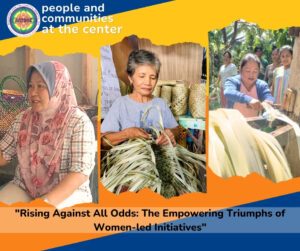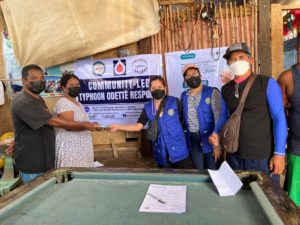ECOWEB Inc., a non-government organization, intensifies its efforts in establishing social enterprises (SE) of various modalities. SE is one of the organization’s development strategy since its inception. However, its SE program kicked off in 2012 when it started producing organic soil enhancers out from farm wastes in partnership with a cooperative of rebel returnees. The enterprise, dubbed Ecorganics, garnered the top national award of the Developmental Social Enterprise Award (DSEA) in 2015. Ecorganics soil enhancer production is sustained and its product became a key input in ECOWEB’s urban gardening project as part of its COVID-19 response program in 2020.
Figure 1: Ecorganics Product exclusively produced by ECOWEB for the past 7 years.
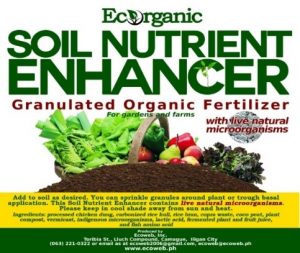
Figure 2: Ecoherbs Liniment. Presently produced at limited volume due to high cost of raw materials.

Another landmark SE initiative of ECOWEB is EcoHerbs. This is a line of bottled liniment and traditional drinks. Ecoherbs is fully owned by ECOWEB. EcoHerbs liniment is made of virgin coconut oil (VCO), essential oils and extracts from 5 medicinal herbs while the traditional drink is made from ginger and turmeric extracts processed into granules. Materials of both liniment and traditional drink is produced by local women’s groups. The EcoHerbs SE project slowed down its operation due to increase in prices of VCO and essential oils that made the end products expensive. At present, EcoHerbs products is at the minimum only catering to patrons willing to pay the higher price of the liniment.
Figure 3: Turmeric drink, one of the products under the EcoHerbs product line.
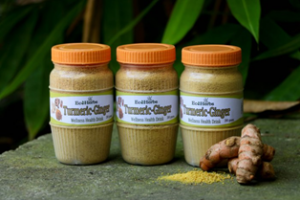
ECOWEB realized that if community-based local producers were assisted by government, their production costs could have been lower and end products like EcoHerbs could remain competitive in the market.
Figure 4: EcoSSol Logo
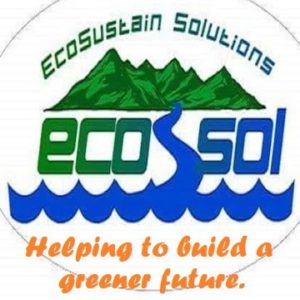
In 2016, ECOWEB embarked into a new approach in SE development by establishing EcoSustain Solutions (EcoSSol), a registered for-profit corporation dedicated of helping agricultural producers. EcoSSol is owned by ECOWEB and shareholders committed to help farmers while earning reasonable income as return of their investment. While ECOWEB focused on helping abaca farmers, EcoSSol focus on ensuring the improvement of fiber and having fair price. The establishment of EcoSSol is part of the strategy of mobilizing private investment in lieu to the limited capital accessible by start-up business from financial institutions and government agencies.
Figure 5: EcoSSol buying abaca fiber buying station in the hinterland of Iligan City.

In 2019, ECOWEB enhanced its social enterprise strategy by insuring inclusivity. This was done by acquiring women-friendly machineries with the support from Bread for the World (BfdW), a Germany-based development agency. The machine was an easy-feeder decorticating machine that do not need much force to operate. This effort allowed more women to be employed in the fiber extraction process, traditionally dominated by men.
Figure 6: Women operating the abaca decorticating machine.
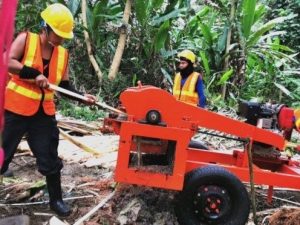
Figure 7: ECOWEB Staff during the formation of Self-Help Groups (SHG) in an IP community in Iligan City.
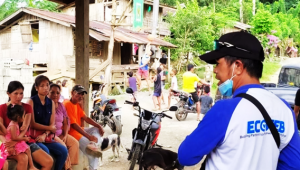
In 2020, ECOWEB focused its SE work in improving farm productivity by organizing indigenous farmers into self-help groups (SHG) of five (5) farming households working together in each other’s farm. The purpose of this is to facilitate farm expansion and better farm maintenance. ECOWEB staff concentrated in teaching farmers methods of improving their fiber quality as the demand for good quality fiber doubled during the COVID-19 pandemic because abaca fiber became a raw material source for the cellulose fiber used in making N95 face mask which are also used by medical front-liners all over the world. This was a great opportunity for abaca farmers, however, many of them were not able to take advantage of the opportunity due to poor maintenance of their farms and limited equipment to produce good quality fibers.
To address the problem, ECOWEB with the support of BftW, was able to purchase new equipment for better quality fiber. ECOWEB also partnered with the Philippine Fiber Industries Development Authority (PhilFIDA) for training of indigenous farmers and fiber extractors from the production guilds. For the past 10 years that ECOWEB ventured on social enterprise as a development strategy to alleviate poverty, it realized that government support for mission driven enterprise is very limited despite the fact that social enterprises played an important role in poverty alleviation and economic democratization.
It is observed that more support was given to profit driven enterprises. ECOWEB strongly believes that the Philippine state has to come up with an SE-supportive policy that will allow SEs to perform better in generating profit and providing social services.
Figure 8: ECOWEB staff giving instructions on how to operate a Spindle stripping machine.
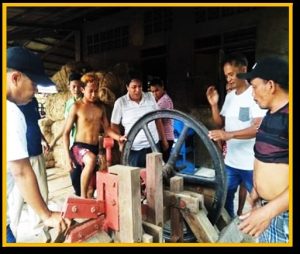
ECOWEB believes that it is now high-time for the President to make the Poverty Reduction through Social Enterprise (PRESENT) Bill a priority. If passed it will provide a supportive atmosphere that will allow SEs to flourish and perform their avowed role of generating profit, providing jobs and other services to the poor, sustaining ecosystems services and contributing to peacebuilding. Pass the #PRESENTBill Now!

